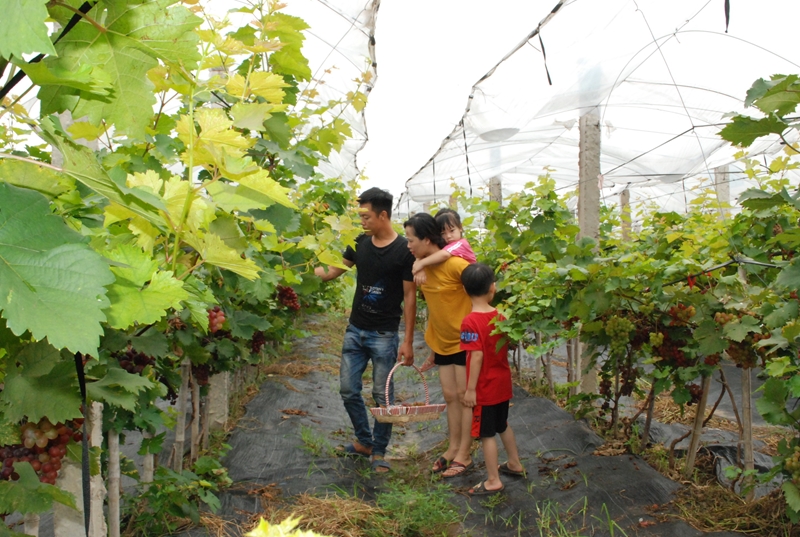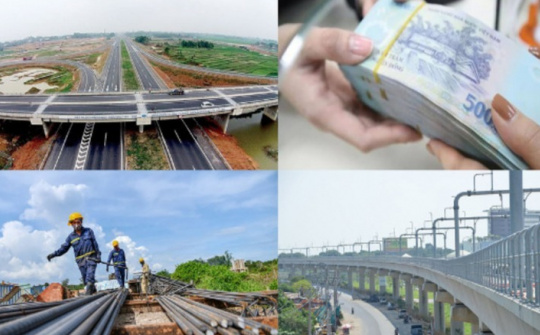 |
| The black summer grape farming model combined with tourism development in Vinh Ngoc commune (Dong Anh district) yields high economic efficiency. (Photo: doanhnghiepkinhtexanh.vn) |
Taking advantage of the fertile alluvial land along the Red River, Mr. Vu Van Luc successfully built a black summer grape farming model combined with tourism development in Vinh Ngoc commune, Dong Anh district.
According to Mr. Vu Van Luc, the alluvial area, in terms of crops, is suitable mainly for vegetables and fruit trees, but simply cultivating these crops is not efficient. Therefore, since 2020, he boldly leased over 4 hectares of alluvial land to establish a black summer grape farming model combined with eco-tourism.
The alluvial land is quite suitable for grape cultivation, but to attract tourists, it is necessary to produce clean and visually appealing products.
“With a scale of 4 hectares, I have allocated 2.5 hectares for growing grapes, including 5 main grape varieties and 20 varieties currently being tested. Most of the grapes here are seedless black grapes from Japan, which are well-suited to the soil and climate of the Northern Delta. The remaining land is used to build infrastructure to serve visitors for sightseeing and experiences,” Mr. Luc said.
Regarding economic efficiency, Mr. Luc said that currently, the market price for grapes ranges from VND50,000 to VND180,000 per kilogram. Visitors who pick grapes at the farm pay up to VND200,000 per kilogram, which includes entry and photography fees. Grapes have two main harvest seasons: from May to July and from October to December, which are also the peak times for tourist visits.
Similarly, Co Loa commune has successfully developed a lotus and water lily farming model combined with eco-tourism. According to Nguyen Van Son, President of the Co Loa Commune Farmers’ Association, since 2019, the lotus and water lily farming model has been established and grown. Today, the lotus and water lily ponds in Co Loa have become marketplaces where many people buy plants to decorate fish ponds or resorts and villas. Additionally, locals make lotus-scented tea to sell. Especially during the blooming season, thousands of tourists visit to enjoy and photograph the scenery.
Regarding agricultural models in the district, Vice Chairman of Dong Anh District People’s Committee Hoang Hai Dang commented that Dong Anh has focused on developing ecological agricultural models. These models are well-suited for urban areas and help residents utilize land resources most effectively.
The district currently has 40 production models linked through value chains. Some chains generate billions of VND in annual revenue. The district has also mapped out the alluvial land areas along the rivers to manage and develop appropriate ecological agricultural models.
Vice Chairman Hoang Hai Dang added that Dong Anh has a total of 1,335.96 hectares of public agricultural land, public farming land, and alluvial land along the rivers, with about 1,516 land plots. In the future, the district will review and support farmers and cooperatives in developing ecological agricultural models according to the plan, maximizing the potential of the alluvial land.
Additionally, to promote and support ecological agriculture models, Dong Anh district is also focusing on building and developing commercial infrastructure. The district will also organize campaigns and training sessions to help residents and organizations understand that ecological agriculture is an essential model for Dong Anh’s present and future development./.





